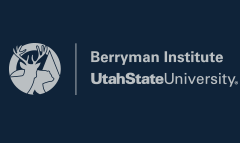Creative Commons License

This work is licensed under a Creative Commons Attribution 4.0 License.
Abstract
Common ravens (ravens; Corvus corax), an adaptable, synanthropic generalist, have thrived coincident with increasing human landscape modifications and fragmentation, consequently affecting their prey, which are often sensitive native and protected species. Ravens are a conservation concern for the protected western snowy plover (plover; Charadrius nivosus nivosus), causing low nest and chick survival in some breeding areas along the Pacific coast of North America. We used a long-term dataset from a breeding snowy plover monitoring program in Point Reyes National Seashore (PRNS) to investigate potential impacts of ravens on snowy plover nest and fledging success. Between 2002 and 2020, ravens accounted for 33.7% of all plover nest failures and 40.8% of unexclosed plover nest failures. Raven activity varied by plover breeding site, with more ravens observed per survey hour at Kehoe Beach and the Abbotts Lagoon restoration area, sites that had lower fledge success than other breeding areas. Binomial generalized linear mixed models found that plover nest success was best explained by raven activity (negative relationship) and use of nest exclosures (positive relationship). Our model results on snowy plover fledge success were less apparent, resulting in difficult management planning for this vital rate when using exclosures. Furthermore, nest exclosures were effective in increasing long-term snowy plover nest success in an ecosystem inundated by high raven activity. Evidence from PRNS and other plover breeding sites along the Pacific coast point to long-term negative impacts from ravens.
Recommended Citation
Lau, Matthew J.; Becker, Benjamin H.; and Press, David T.
(2021)
"Common Raven Impacts on the Productivity of a Small Breeding Population of Snowy Plovers,"
Human–Wildlife Interactions: Vol. 15:
Iss.
3, Article 13.
DOI: https://doi.org/10.26077/ygkm-9b80
Available at:
https://digitalcommons.usu.edu/hwi/vol15/iss3/13
Included in
Biodiversity Commons, Ornithology Commons, Other Ecology and Evolutionary Biology Commons



